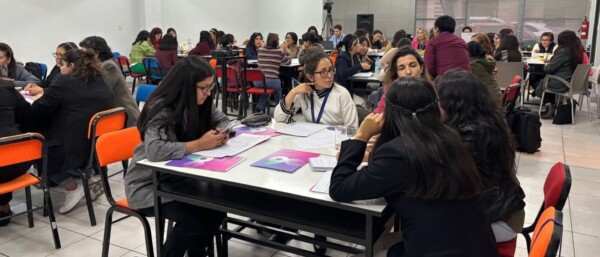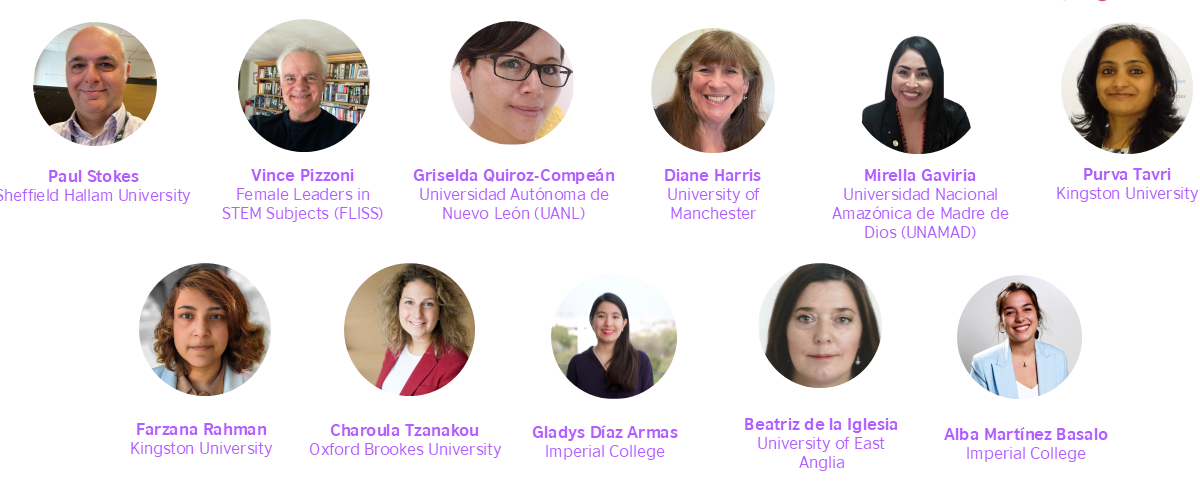
Key reflections from the mentoring conference for women in STEM, Peru
 Edward Vogel, Lead Consultant for Latin America and the Caribbean, People 1st International
Edward Vogel, Lead Consultant for Latin America and the Caribbean, People 1st International
This month, we collaborated with the British Council, International Mentoring Network for Women in STEM, British Embassy Lima, UNESCO, Concytec Peru and Women in Mining (WiM) Peru to deliver a conference titled “Designing and Implementing Mentoring Programmes for Women in STEM” in Arequipa, Peru, focusing on internationalisation.
The two-day conference, live-streamed for participants, featured participation from leading universities and institutions from the UK, Mexico and Peru, reflecting a shared commitment to advancing gender equity in STEM fields.
Shaping the future of STEM mentorship
The workshop was delivered as part of the British Council’s Going Global Partnerships Programme within their “Women in STEM” initiative, which aims to reduce the gender gap in STEM fields through international collaboration and mentorship. Mentoring plays an important role in nurturing talent and ensuring that women in STEM receive the support they need to progress as it encourages the exchange of knowledge, skills and networks. To support this goal, the conference engaged higher education department heads in STEM, industry HR and training development teams, as well as mentors and mentees to promote internationalisation in mentoring programmes.
Contributions from a dynamic line-up of speakers
We recruited expert speakers from the UK, complemented by a diverse group of expert professionals sourced through our partners in Peru and Mexico. Participants engaged in workshops and discussions that equipped them with essential tools and knowledge to enhance mentoring initiatives within their organisations.
Hosts:

Speakers:


Insights into effective practices
The conference provided a wealth of valuable insights, approaches and good practice, highlighting several key reflections. Some of the most valuable lessons centred around practices for successfully implementing mentoring programmes in STEM, particularly in a cross-cultural context. The following insights provide a framework for enhancing the effectiveness and reach of these initiatives, with a strong emphasis on promoting gender equality in STEM:
- Cross-cultural understanding: Expert speakers highlighted the importance of integrating cross-cultural sensitivity into mentoring programmes. For mentoring relationships to be effective, both mentors and mentees must navigate cultural differences with openness. This requires awareness of different communication styles, expectations and experiences between international participants. Ensuring that mentors and mentees understand these nuances can build stronger connections and more impactful outcomes.
- Mentor and mentee alignment: Successful mentoring relationships rely on aligning goals and expectations from the outset. Several speakers recommended a structured goal-setting processes where both parties clearly define the objectives of the mentoring relationship. This not only ensures accountability but also helps both mentor and mentee track progress and celebrate successes.
- Practical implementation strategies: The importance of practical frameworks for implementing mentoring programmes was highlighted, with a focus on setting clear criteria for mentor-mentee matching and developing action plans for each stage of the mentoring relationship. Structured frameworks, such as those used by Women in Mining (WiM) Peru were presented as models for ensuring consistent and effective mentoring outcomes.
- Role of KPIs and impact measurement: Measuring the impact of mentoring programmes was emphasised as crucial for long-term success. Dr Boksun Kim of Plymouth University and Alexandra Knight of STEMazing highlighted the need for using key performance indicators (KPIs) to track progress, enabling institutions to evaluate the effectiveness of mentoring initiatives. This was echoed by other speakers who encouraged the development of specific metrics to monitor both individual and programme-wide outcomes.
- Creating a supportive community: Building a strong support system for women in STEM was seen as essential to overcoming challenges such as gender biases and limited access to networks. Several speakers advocated for the creation of peer-support networks where mentees could share their experiences and advice with others in similar roles. This shared approach was seen as especially effective in fostering a sense of belonging and purpose among participants.
- Mentor training and support: Speakers underscored the importance of mentor training to ensure the quality and consistency of mentoring support. Training mentors in areas such as active listening, empathetic communication and offering constructive feedback helps them provide more effective guidance. Institutions like STEMazing and the University of Plymouth offered examples of successful mentor training programmes that could be adapted for use in Peru.
- Sustainability and scalability: A recurring theme was the sustainability of mentoring programmes. Many presenters advocated for embedding mentoring initiatives into broader institutional strategies to ensure their longevity. This approach includes integrating mentoring into national policy frameworks and securing funding to support ongoing programmes. Establishing long-term relationships between mentors and mentees rather than short-term engagements was also highlighted as essential for achieving lasting impact.
We would like to thank the speakers and panellists for their valuable contributions to the conference, and our partners for the opportunity to collaborate on such an inspirational programme.



